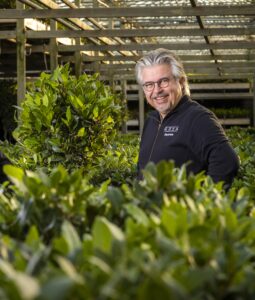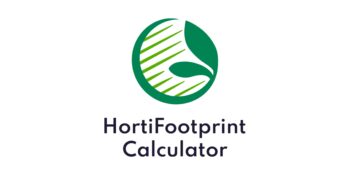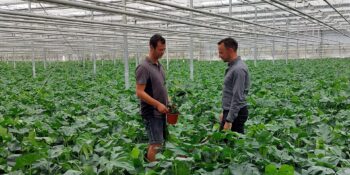Decorum and MPS signed an agreement last month with which the companies will enter into a long-term partnership. Further sustainability of the products that Decorum offers is at the top of the company’s priority list. That is why the company intends that the 54 companies that are members of Decorum will obtain the MPS-GAP and MPS-SQ certificate in addition to MPS-ABC. MPS and Decorum have also started a pilot of the HortiFootprint.

Decorum and MPS sign an agreement in which long-term cooperation is entered into.
Some growers, especially those who carry Decorum’s sustainable brand Feel Green, are also MPS-ProductProof participants. “Our customers are increasingly demanding in terms of sustainability. We can be expected to lead the way from a quality brand such as Decorum. Customers must be able to buy products from Decorum blindly, knowing that quality, certifications and sustainability are in order”, says Stef de Jong, Manager Association Affairs at Decorum. “Our ambition is to keep the CO2 footprint of our members as low as possible.”
Exciting
So that the growers affiliated with Decorum can learn from each other and become more sustainable, MPS also shares data with Decorum, after permission from the grower, about the use of crop protection agents, fertilisers and energy. A total of five floriculture companies affiliated with Decorum have also started developing the HortiFootprint, which measures the CO2 footprint, of horticultural products.
This so-called “HortiFootprint” was developed by a consortium of companies in the horticultural sector, including MPS. It shows the impact the production of a horticultural product has on the environment, from cutting to end product. “Our first impression of the available data is that we can clearly see per company where profit can still be made. For example, we are already seeing a clear difference in score between growers who do or do not have solar panels”, says De Jong. Charl Goossens, owner of Gova Laurierkwekerij (Laurel Nursery), is affiliated with Decorum and one of the five growers where a CO2 footprint is carried out on the company. “It is quite exciting, I am very curious what the scores will be.”
Entire life cycle

Charl Goossens, owner of Gova Laurierkwekerij (Laurel Nursery), and affiliated with Decorum as a company.
MPS is working with other parties in the horticultural sector on an internationally accepted method for horticulture to calculate the environmental impact of plants and flowers. In addition to the use of crop protection agents, fertilisers and energy, land use, packaging and CO2 emissions are also important themes in the HortiFootprint. In total, the calculation method contains sixteen environmental impact categories and provides an overview of the entire life cycle.
“Together with LetsGrow and Blonk Consultants, we have developed a software tool based on the HortiFootprint calculation rules. We are testing this tool with the five Decorum growers. In this pilot we focus on the factors that influence climate change”, says Martine Holtkamp, Product Development Manager at MPS. “I am pleased that a group of progressive companies is cooperating. This allows us to further develop the calculation method.”
Step-by-step
If the pilot with Decorum is successful, MPS wants to expand the software tool step by step, from a CO2 footprint to an environmental footprint in which the entire life cycle of a product is mapped. Goossens sees a future in this. “It is not good to wait for things to become mandatory. I also think it is important to be at the forefront of sustainability and in the end it will be a license to produce anyway. You can no longer ignore it. Consumers want transparency about how their plant or flower is produced.”



